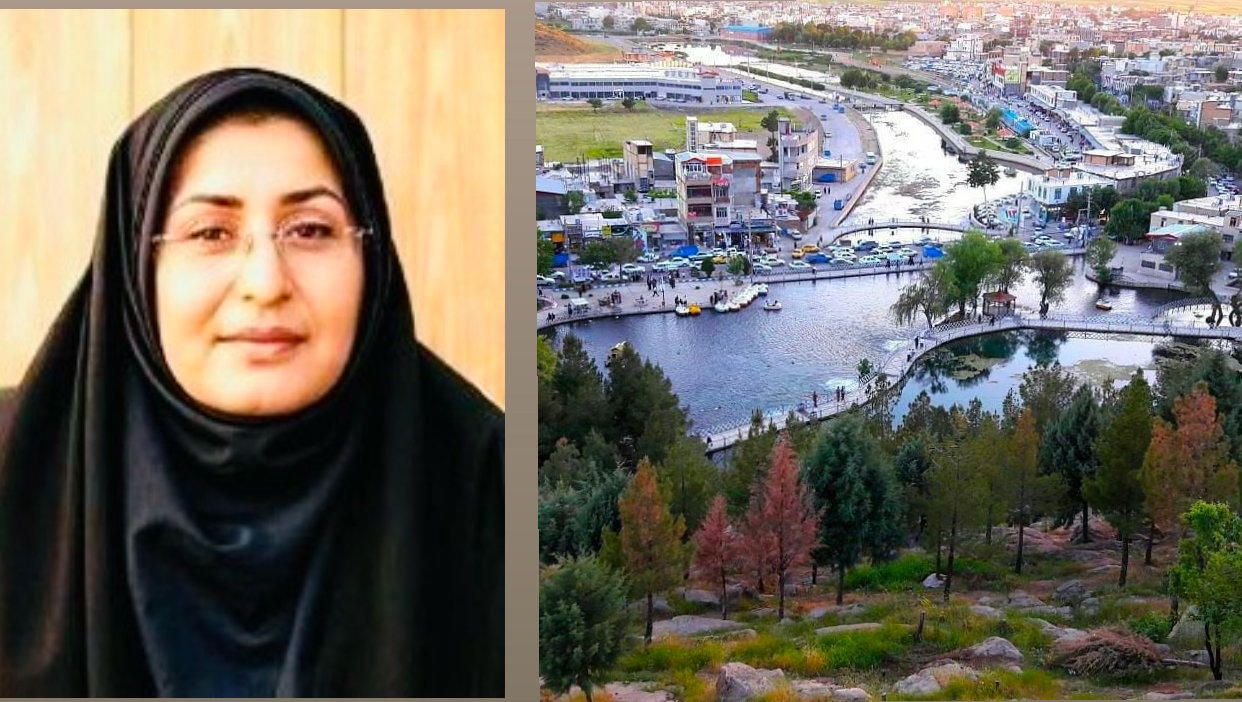Khadijeh Jashnparvar has made history by becoming the first female mayor of Ravansar in Kermanshah Province. Her appointment, endorsed by Governor Manouchehr Habibi, marks her as the first Sunni Kurdish woman in the province to hold such a position and highlights the Iranian administration’s commitment to diversity. Meanwhile, in neighboring Kurdistan Province, the earlier appointment of Arash Zarehtan Luhoni as governor emphasized the government’s focus on inclusivity and representation for Sunni Kurds.
Jashnparvar: A Historic Appointment in Kermanshah
Khadijeh Jashnparvar’s appointment as mayor of Ravansar has set multiple milestones. She is the first woman to serve as mayor in the town’s history and the first Sunni Kurdish woman in the role under the current Iranian administration. Her selection aligns with Governor Manouchehr Habibi’s vision of fostering inclusivity and empowering marginalized groups.
A PhD candidate in economic development at Razi University, Jashnparvar brings an impressive academic and professional background to her new role. Her scholarly contributions include publications on economics and urban management. Her extensive career includes positions such as deputy director of planning and development in Kermanshah, senior economic affairs officer, and recognition as the top provincial researcher in 2023. This breadth of experience positions her well to address Ravansar’s developmental challenges and opportunities.
Ravansar and Hawraman: Regional Challenges and Potential
Ravansar, with a population of 50,000, serves as the gateway to the Hawraman region, celebrated for its natural beauty and cultural heritage. Hawraman spans parts of Kermanshah and Kurdistan provinces, home to over 400,000 residents in tiered villages renowned for their architectural charm.
As mayor, Jashnparvar faces the dual challenge of addressing economic disparities and fostering sustainable development while preserving Hawraman’s unique cultural identity. Her mandate, as outlined by Governor Habibi, emphasizes strategies that align with the administration’s goals of inclusivity and regional development.
Background: Arash Zarehtan Luhoni’s Appointment in Kurdistan
Before Jashnparvar’s historic appointment, another significant milestone occurred with the appointment of Arash Zarehtan Luhoni as governor of Kurdistan Province. Luhoni, a Sunni Kurd from Paveh, was named governor as part of the administration’s efforts to increase Sunni representation in leadership roles.
Luhoni, 49, holds a PhD in international economics and has an extensive record of public service. He has served as a member of Iran’s 11th Islamic Consultative Assembly, held leadership roles in the Red Crescent of Kurdistan and Kermanshah provinces, and worked as governor of Jovnarood. He also served as a member of the Sanandaj City Council and deputy for economic affairs in Kurdistan Province.
The decision to appoint Luhoni was widely praised as a step toward inclusivity in a country where Sunni Kurds have historically faced underrepresentation in high-ranking positions. His leadership set the stage for Jashnparvar’s later appointment in Kermanshah Province.
A New Era of Inclusive Governance
Jashnparvar’s appointment reflects Governor Habibi’s promise to prioritize women and Sunni leaders in administrative roles. The recent appointments of Farzad Mohammadi as mayor of Ravansar and Osman Salehi as mayor of Tazehabad further underline this commitment. Mohammadi, with extensive experience in urban planning, and Salehi, a seasoned architect, bring expertise to their respective roles.
These developments, alongside Zarehtan Luhoni’s leadership in Kurdistan, signify a shift in Iran’s administrative policies. Iranian President Masoud Pezeshkian praised the government’s efforts to empower talented individuals regardless of gender, sect, or ethnicity. Speaking at a cabinet meeting, Pezeshkian emphasized that these appointments align with the government’s commitment to inclusivity and meritocracy.
Jashnparvar and Luhoni’s leadership not only break historical barriers but also set a precedent for the inclusion of marginalized communities in decision-making roles. These milestones resonate beyond Kermanshah and Kurdistan, offering hope for broader representation and equity across Iran.


